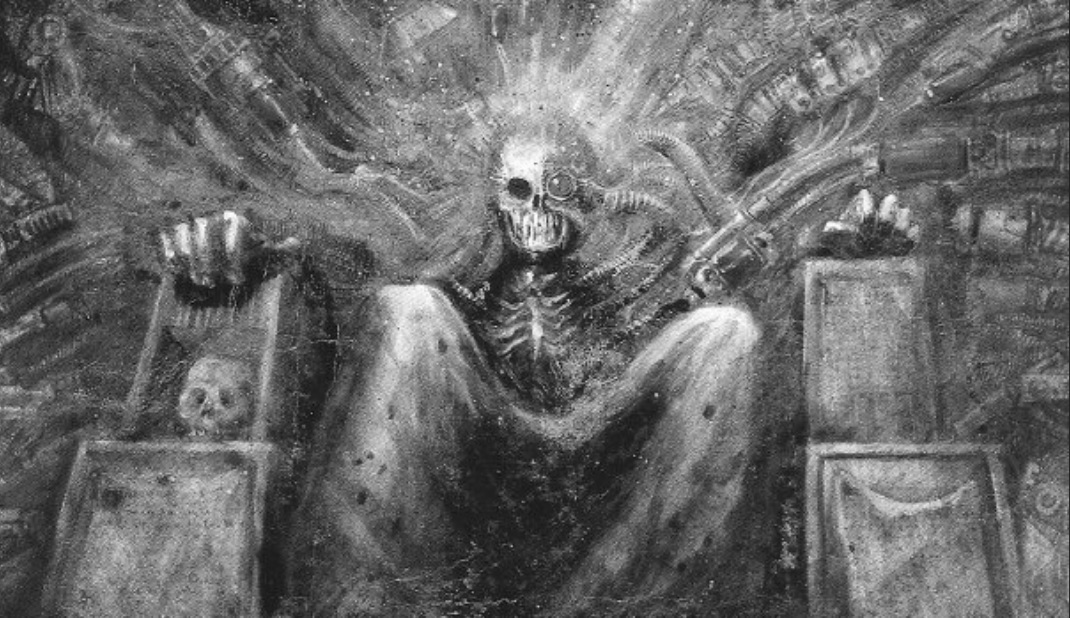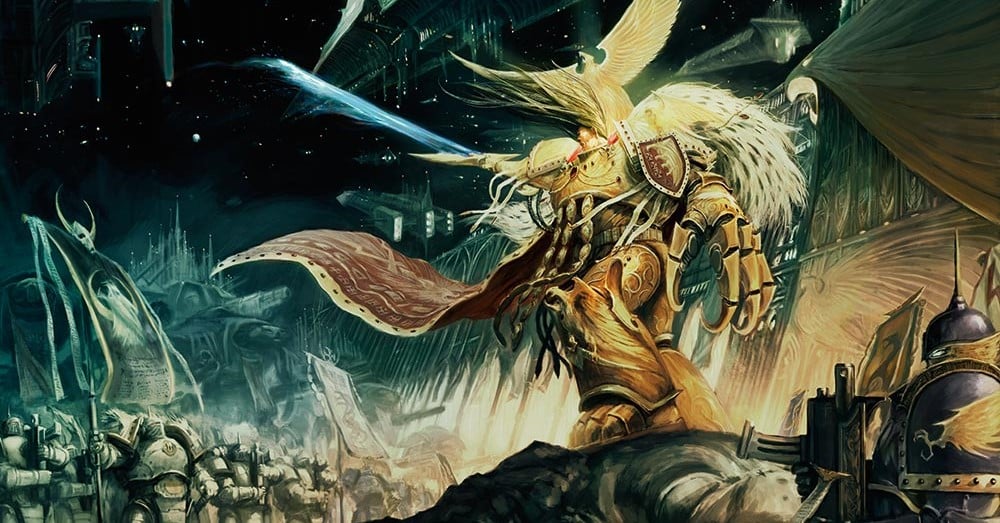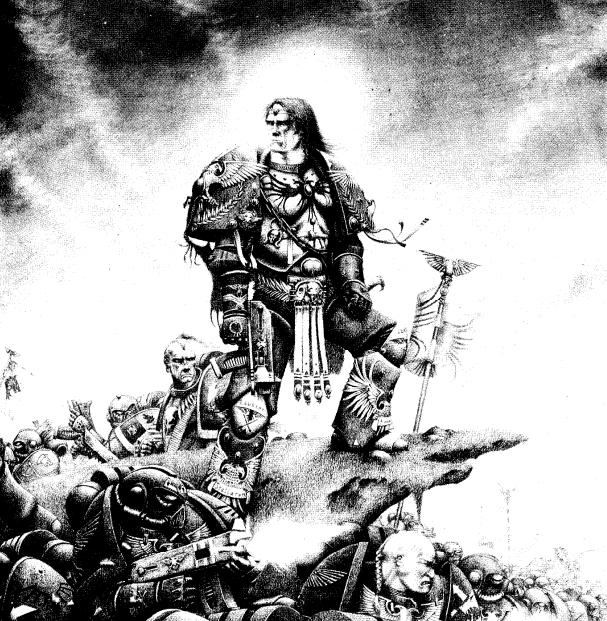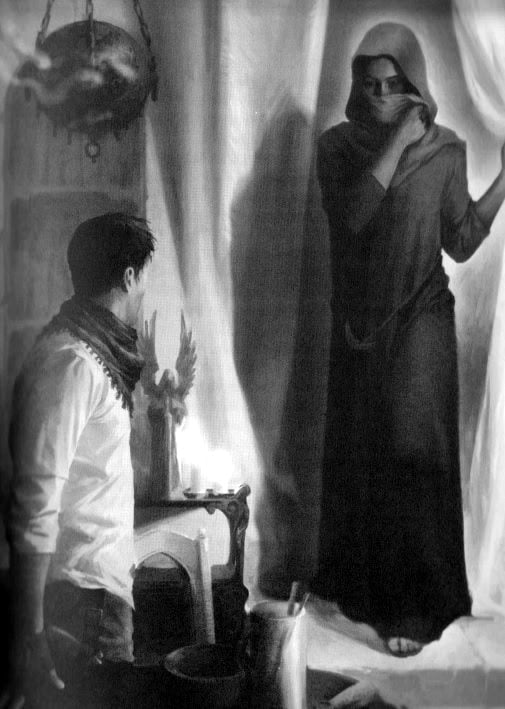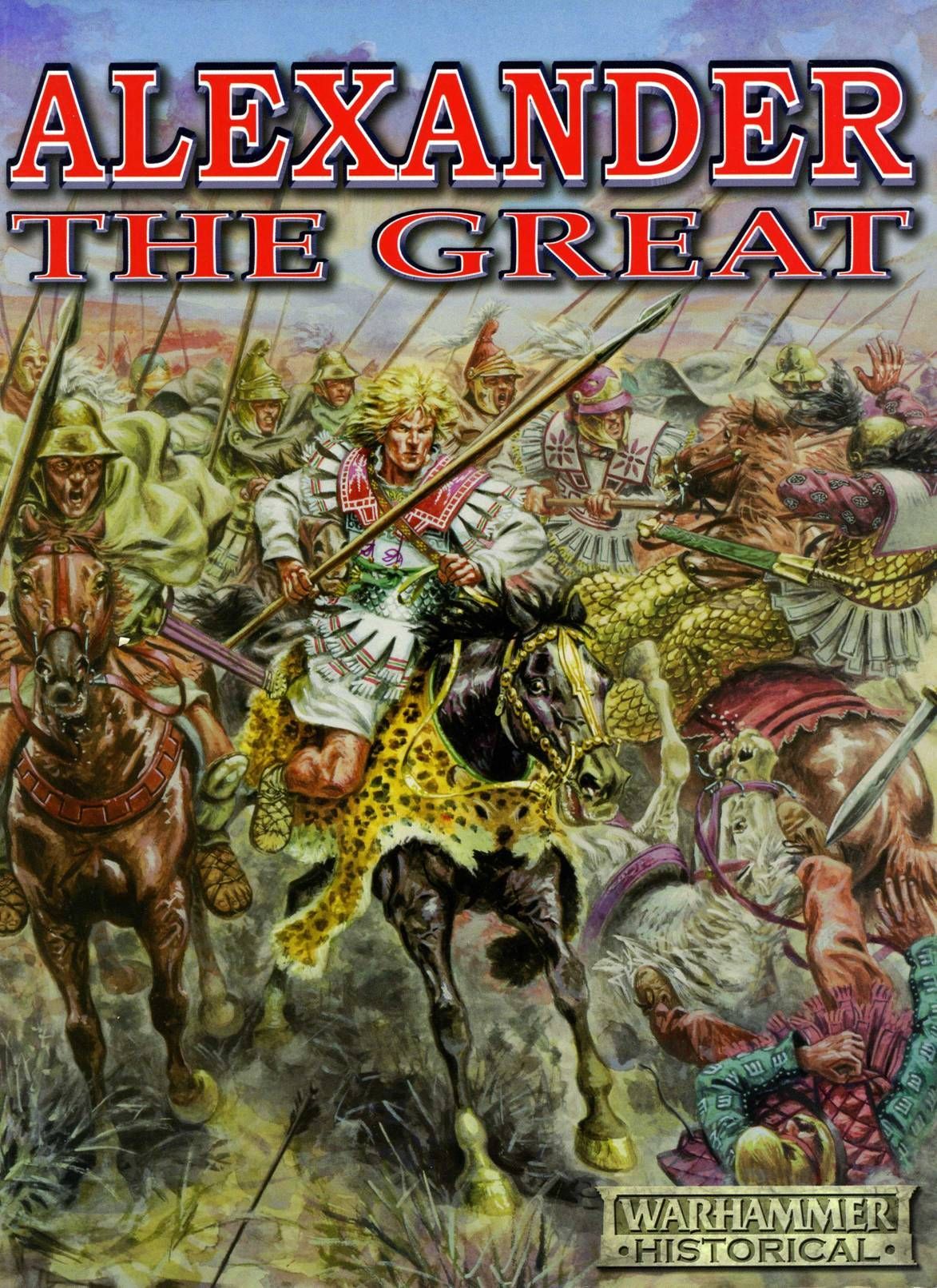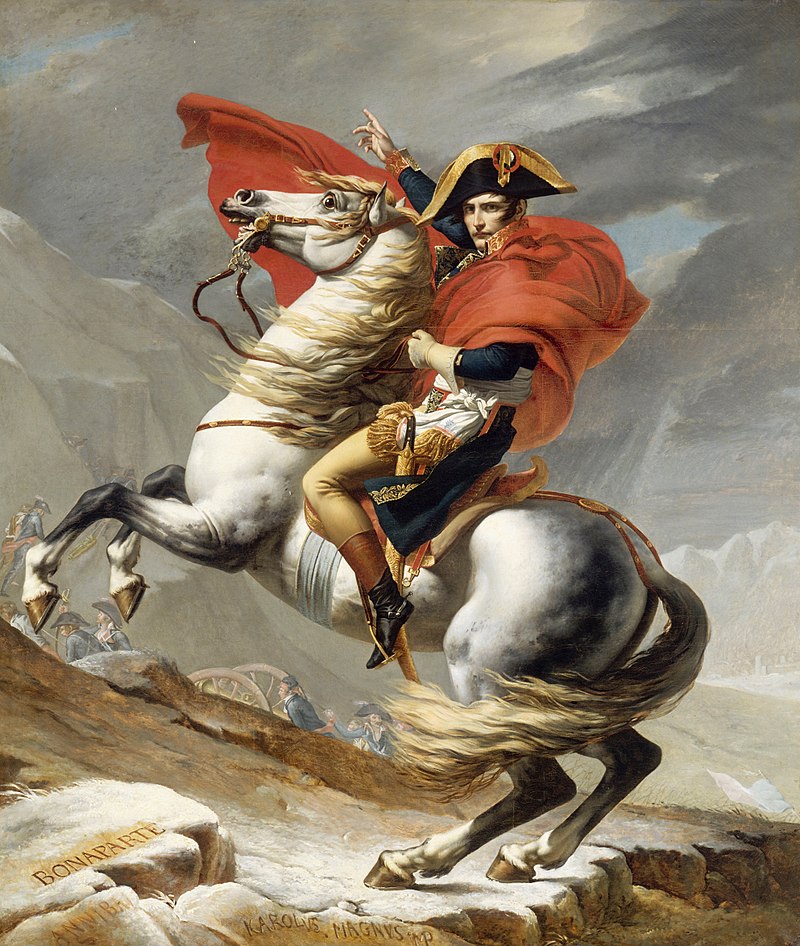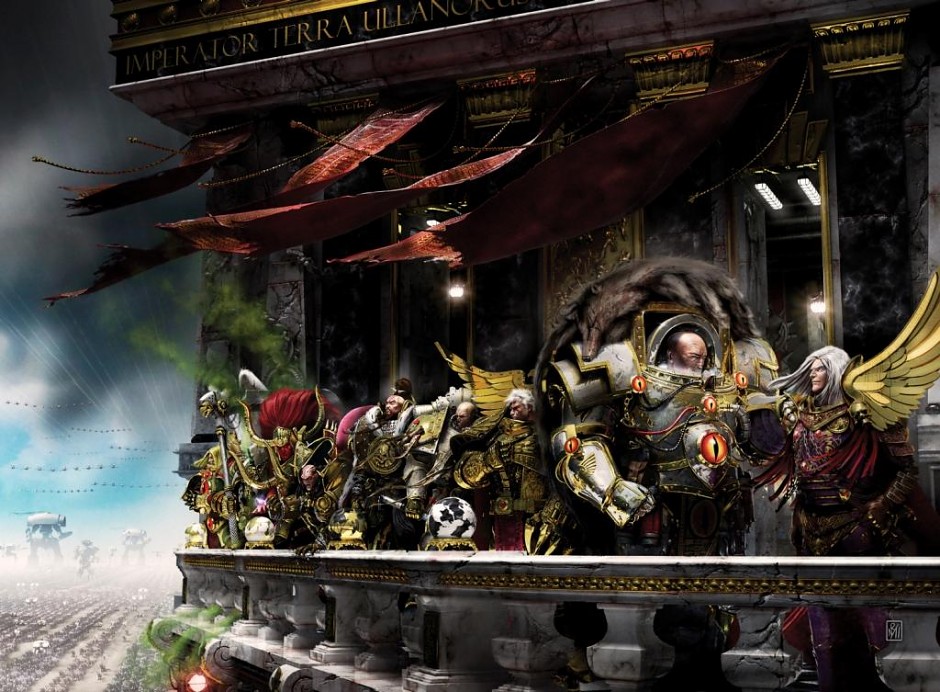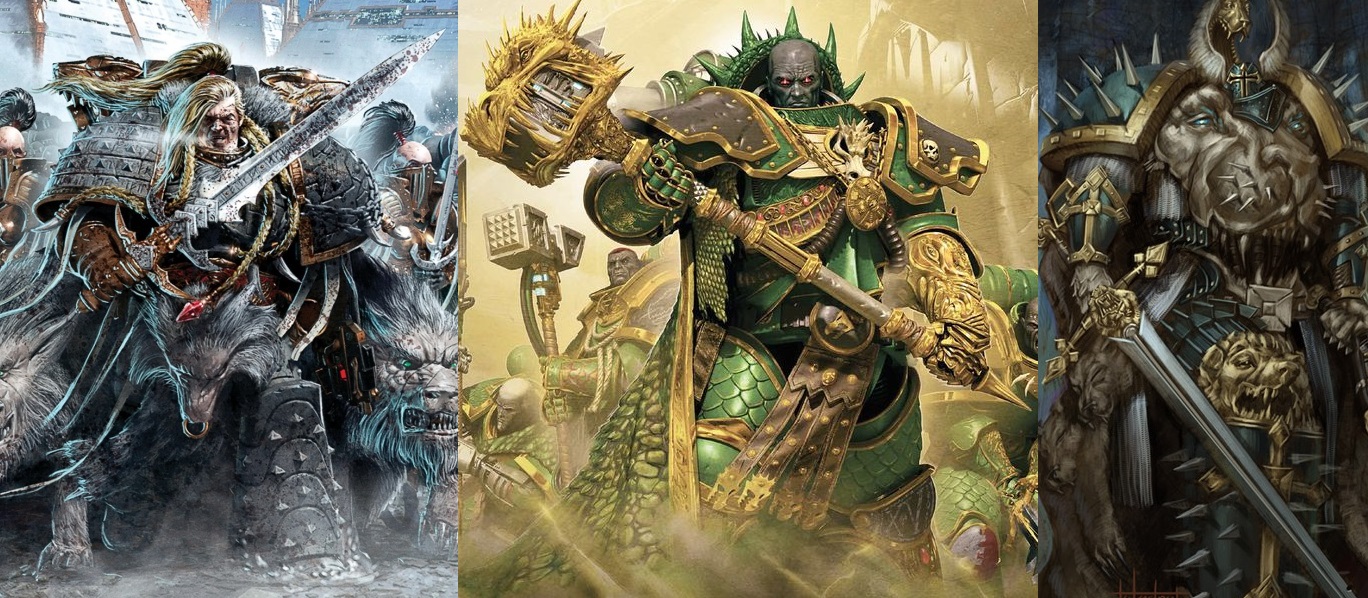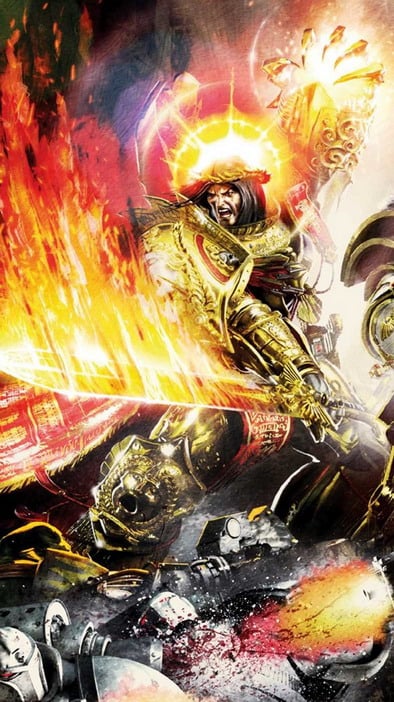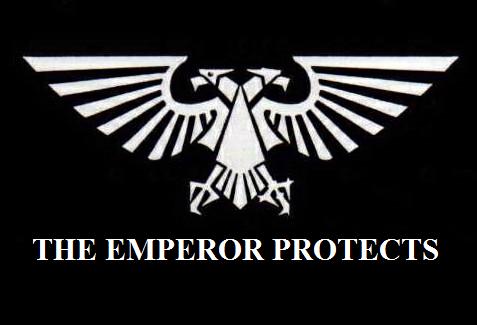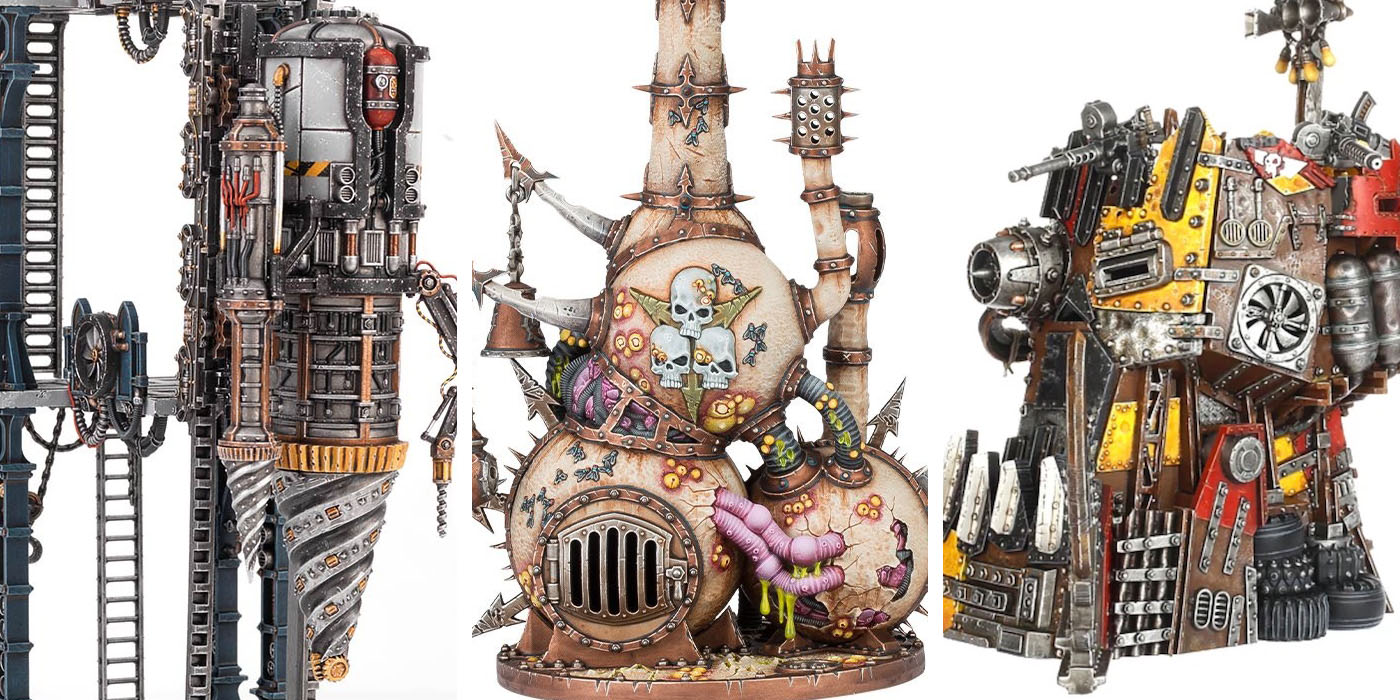Warhammer 40K Theories: Napoleon Was The Emperor of Mankind
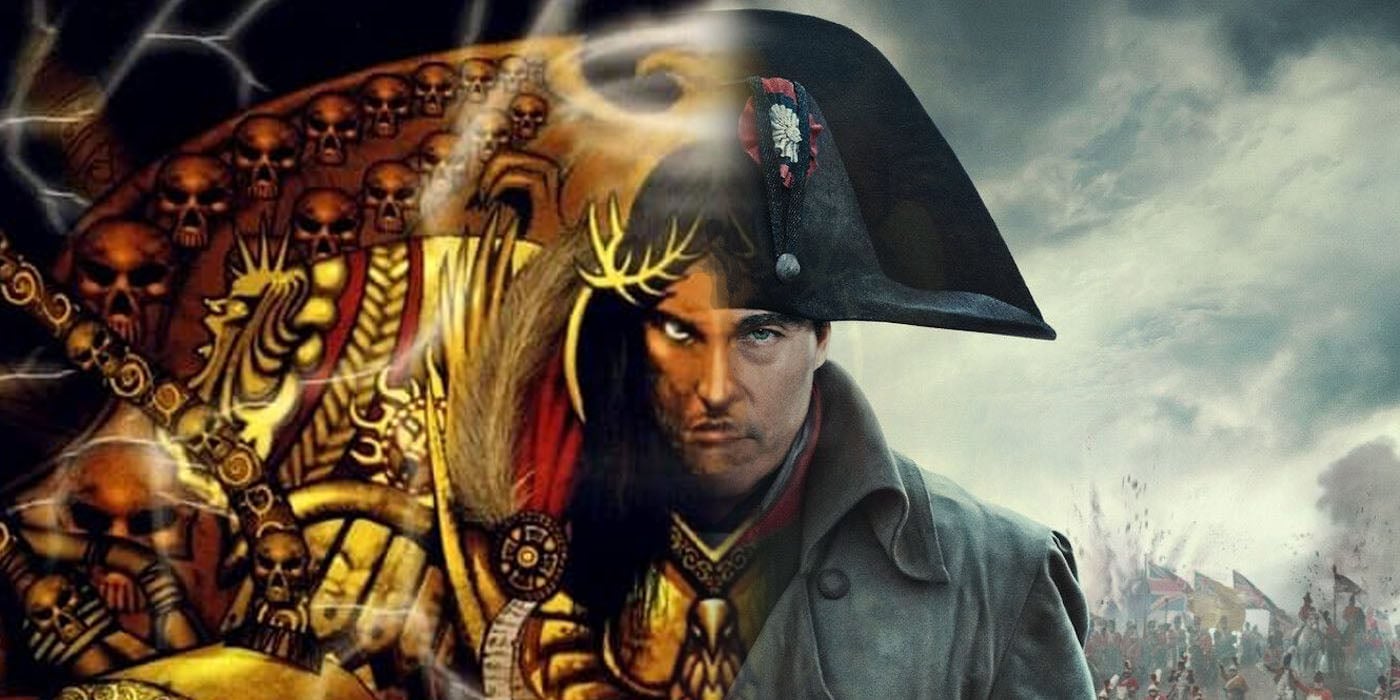

Is Joaquin Phoenix about to be the first person to play the Emperor of Mankind on the big screen?
Napoleon was one of the greatest generals and most important historical figures in European history. He’s a fascinating subject to study and a divisive one. The French Emperor continues to have an almost hypnotic appeal to people even to this day. Ridley Scott’s upcoming Napoleon is just the latest in a long line of movies and shows about the Emperor.
Napoleon is also super important to wargaming. Tabletop wargames, in many ways, got their start recreating the Napoleonic wars. From this seed, a massive industry and Warhammer 40,000 was born. However, 40K and Napoleon might have another connection, one hidden deep in the lore. It turns out that the French Emperor and the Emperor of Mankind might just be the same person.
The God Emperor
According to Warhammer 40K lore, the Immortal God-Emperor of Mankind has been around for a long time, moving among humanity for long millennia. Though the Emperor would not come out into the open until the End of the Age of Strife, this does not mean He was not active before then. Learning, growing, and trying to influence humankind. Indeed His vast knowledge of both science and the arcane arts implies that He was actively seeking out information and learning for a significant period of his life.
Since we are living in the distant past of Warhammer 40,000, this also implies that the Emperor has been active throughout our history. Indeed He could be living alongside us right now. Because of this, it can be pretty fun to try and look at history and figure out who might have been the Emperor in disguise.
What We Are Looking For
In our search for the Emperor in our history, we should consider a few things:
- We don’t know when or where the Emperor was born, as there have been several conflicting accounts. The earliest puts His birth around 8,000 BCE in Mesopotamia, so we will take this as the earliest date He could have been active.
- The Emperor was never “out in the open.” This means He likely hid his powers. While people who exhibited unnatural charisma or resilience are good indicators, one does not have to have displayed any sort of powers to be considered.
- As a powerful pysker the Emperor can take pretty much any form He wants. We know His appearance is a projection, so we are not limited by race or gender in our search.
- The Emperor has lived lives as a woman.
- The Emperor could also likely use his powers to insert himself into a family if need be.
- Given His nature, people with mysterious pasts or who disappeared are more likely candidates.
- At times the Emperor was opposed by groups of other Perpetuals.
So, in short, these are the kinds of things we are looking for when trying to see if any historical figure could be the Emperor.
Confirmed Sightings of the Emperor
We don’t really have a lot, if any, 100% confirmed instances of historical figures actually being the Emperor. While some, here and there, are implied, 40K doesn’t really come out and say it. One of the closest confirmations we get comes from the novel Saturnine. During a conversation between Erda and John Grammaticus, they have the following exchange:
“‘He has never listened, never learned,’ said Erda. ‘In the cycles of old lore, He is Saturn. Inflexible authority.
‘What?’ asked John.
‘He is Saturn. He is Cronus. He is Oanis. It depends on your pantheon.’
‘You don’t believe in gods.’
Advertisement‘I don’t,’ she said. ‘But the symbols have always intrigued me, and through the ages He has styled himself on many of them, for effect. Mithras, the soldier-god, Tyr Hammerhand, the Wolf of the Romannii, Arawn, Enlil of Storms, Maahes the lion-headed, Seth. And Saturn, most of all. The father-god. The maker. In the acroamatic texts of alchemy, Saturn is glyphed as lead, the prima matera. it is heavy and it seals, and limits, and protects. It is cold authority. Saturn is a black, stone prison, caging all truth inside its chain of rings…’
‘He is Saturn,’ she whispered. The Saturnine aspect is lead. Lead is heavy. But lead, John. Lead can be molded.’
This confirms that the Emperor has styled Himself or taken on aspects of a number of mythological characters and gods. However, the cause and effect here are a little unclear. Did the Emperor just hear these stories and try to emulate them? Was He the inspiration for these stories? Did He hear them and then impersonate the characters in them so that they became one and the same? It’s not clear. However, I think the idea that these gods and legends are based on His exploits makes the most sense.
One of the few confirmed personas of the Emperor was Alexander the Great. Horus himself confirms this, which is likely pretty accurate (of course, the Emperor could have lied to him). There are a number of other good candidates in history. For instance, Rasputin was almost certainly at least a Perpetual, if not the Emperor. And all this brings us to Napoleon.
I probably don’t really need to introduce Napoleon again. It’s clear the famous French General and Emperor could well have been The Emperor in early life. Napoleon rose from humble origins and so well could have been a fabrication to in a rather short period of time, become Emperor of most of Europe. He exhibited brilliance both on the battlefield and, at times a reformer and politician. There are many aspects of his Empire that the Imperium would later mirror – from the look and dress of the period often being emulated to the military victories to the circle of the Marshals of France mirroring the Primarchs.
Most interesting is Napoleon’s magnetic, almost miraculous, charisma, which again and again saw him out of tight spots. During his return from exile on the Island of Elba during the so-called 100 Days, he was able to convince armies sent to capture him to instead join him in restoring his Empire. This is a pretty crazy act that would make extra sense if backed up by a little bit of warpcraft.
The Marshals
Napoleon was famously served by the Marshals of France. This was a group of generals that he raised to be his right hands. Ennobled and granted great powers, they led armies, and pushed his conquests across Europe. There are some strong parallels to the Primarchs here, as their role was pretty similar. Not unlike the Primarches, they were also plagued by infighting and personal grudges. They did very well when Napoleon was there to rein them in but often struggled when left to their own devices. A few even turned on him in time, helping with his downfall.
Indeed there is a pretty clear connection, I think, between Alexander the Great’s close group of generals, Napoleon’s Marshals, and the Primarchs. We know that two of these were the Emperor, and it’s possible all three were. This might just be an idea He’s been tinkering with for tens of thousands of years. According to Erda, this is actually a bit of a cycle of His. He is great at gathering together groups of allies. However, He eventually drives them away, often because He feels they are holding Him back. It’s a bit tragic if the Emperor Himself is trapped in a cycle, doomed to repeat the same failures.
How Did He Lose?
Of course, if the Emperor was Napoleon, it does beg the question of how He lost. Shouldn’t someone of His power have triumphed and won in the end? Well, I think there are two things at play here. The first is that Napoleon often seems to have fallen to the Emperor’s own fatal flaw. Simply put, He is impatient and pushes too far, too fast. We know this has always been one of His aspects.
The Emperor has plans for humanity to evolve but wanted this to happen in a few tens of thousands of years, rather than a million or so the rest of the Perpetuals were willing to let happen. Again and again, such as after Ullanor, rather than consolidating, He pushes onwards. Napoleon (and Alexander/The Emperor) also had this same flaw. Napoleon pushed against new enemies and started new wars without fully wrapping up old ones. This seems like a very… Imperial trait.
Secondly, it seems likely that this was one of the points in history where the Emperor was opposed by several other Perpetuals. We know there has long been a bit of a shadow war going on. It seems certain that many of the nations fighting France at this time were influenced or controlled by Perpetuals. Maybe some of the other generals or admirals, Wellington, Nelson or Blucher, for instance, were Perpetuals.
I’m guessing that these and the Emperor’s desire not to reveal His full powers were enough to keep Him in check. After all, Alexander also failed, so the Emperor was not infallible. Still, given all this information, it does seem fairly likely that the Emperor of Mankind was also Napoleon in an early attempt at Unification.
Let us know what you think of this theory, down in the comments!

